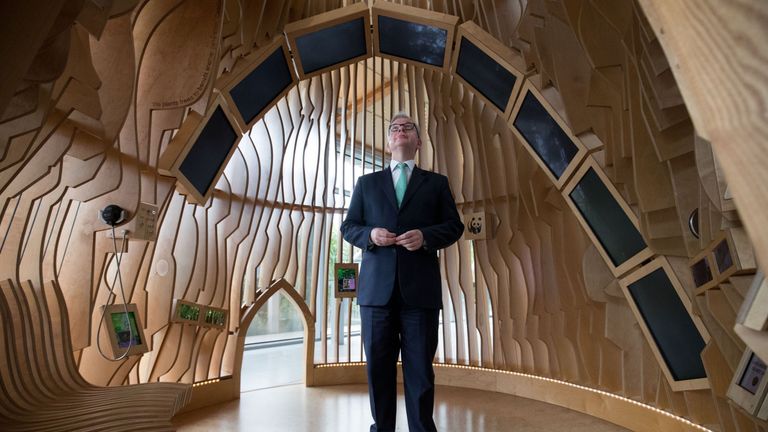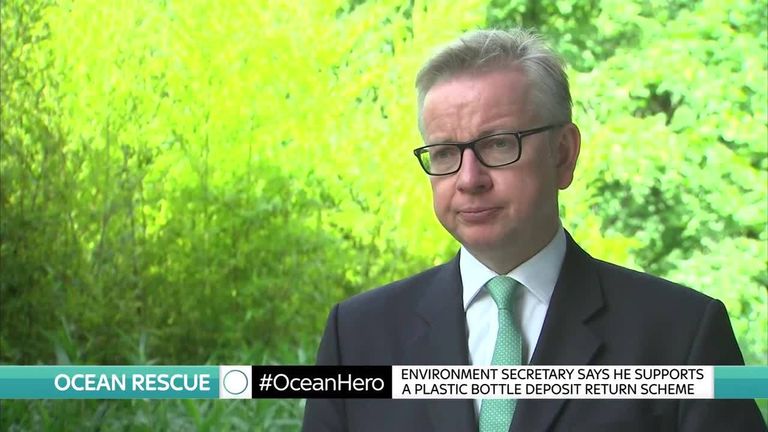Cabinet 'pragmatic' on free movement during Brexit transition, Gove says
The Environment Secretary says migration policy after Brexit should be "shaped by what's in the interests of our economy".
Friday 21 July 2017 19:46, UK
Michael Gove has confirmed that the Cabinet supports a transition period after Britain leaves the EU, in which free movement may continue for several years.
The Environment Secretary said ministers were agreed that a "pragmatic approach" was needed on controlling migration "in the best interests of the economy".
It appears to signal a significant shift compared with earlier in the year when Brexit-leaning cabinet ministers were opposed to a long transition phase after Britain leaves the EU in March 2019.
Cabinet sources claimed today that an implementation period of between two and four years had now been agreed by Cabinet ministers.
Mr Gove, who has recently rejoined the Cabinet, would not be drawn on whether he or the Government supported such a timetable.
As the architect of the Vote Leave campaign, he had been a hawk on the subject of controlling migration - promising when he ran for the Conservative leadership last summer that he wanted to see free movement end and "numbers go down".
But on Friday, speaking at an event in Woking in Surrey, he said: "I think the judgment we need to make about future migration policy should be shaped by what's in the interests of our economy, consistent with recognising the instruction the British people gave us last year."
Mr Gove added that it was important to "honour the referendum result" by controlling immigration but suggested this did not need to happen immediately.
Speaking to Sky News he also suggested seasonal workers from the EU would be exempt from the Government's target to reduce net migration to tens of thousands.
The National Farmers Union have said they would need 90,000 seasonal workers a year by 2021 to stop food "rotting in the fields".
Fellow Brexiteer for a full separation from Brussels - having earlier said such a period should last only a few months.
Downing Street pointed out that Theresa May had opened the door to a transition period in her Lancaster House speech in January when she outlined her Brexit priorities and that she was keen to avoid a "cliff edge" for businesses.
But the terms of any such deal are likely to be viewed with suspicion by hardline Eurosceptics.
Conservative MP Jacob Rees-Mogg said calls for a transition period were an attempt to overturn the result of last year's referendum.
"If we are subject to the rules of the single market and the regulations of the single market, and subject to the fiat of the European Court of Justice, we are paying for the privilege and we can't do free trade deals with the rest of the world, then we are in the EU," he told BBC2's Newsnight.
"In the old and tired phrase, if it looks like a duck, walks like a duck and quacks like a duck, it's a duck."
UKIP's interim leader Steve Crowther said: "Extending freedom of movement for two, three or four years produces no obvious benefit to anyone. It is an EU principle, so ending it in 2019 or 2023 makes no difference to them."





